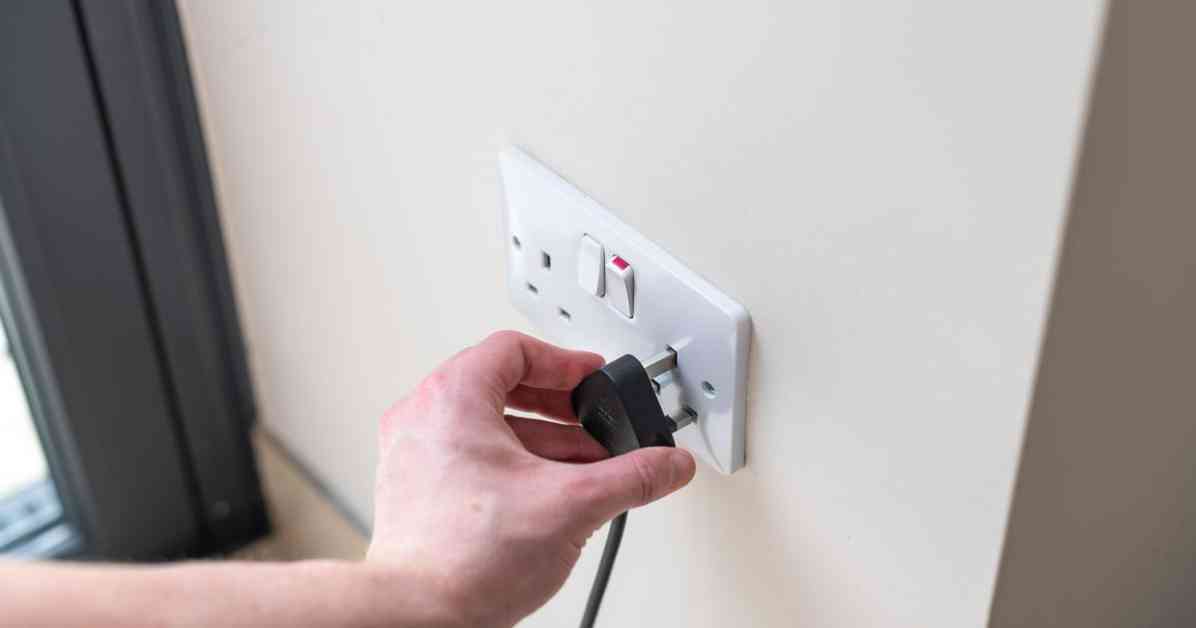Amidst rising energy costs and the ongoing cost of living crisis, households in Ireland are feeling the financial strain. With the winter season approaching, many are looking for ways to cut down on their expenses, particularly when it comes to their energy bills. According to the Irish Mirror, energy experts are advising households to consider switching providers as a potential solution to saving money on their annual energy costs. In fact, the Commission for the Regulation of Utilities (CRU) recently reported that by switching suppliers, homes could save over €1,200 on their energy bills.
To help Irish families navigate through the challenges of high utility charges, The Mirror UK has debunked several energy usage myths and provided practical tips to manage energy outgoings effectively. From the cost of running appliances to smart heating practices, these tips aim to empower households to make informed decisions and save money on their energy bills.
Debunking Common Energy Myths
1. **Dishwashers vs. Handwashing:**
One common myth is that handwashing dishes is more energy-efficient than using a dishwasher. However, according to Uswitch, the energy efficiency of your dishwasher, the setting you use, and how full it is all play a role in determining which method is more economical. To save energy when using a dishwasher, always use an eco setting, wait until it’s full, and avoid water wastage by not pre-soaking excessively. When handwashing dishes, pre-soak and use a bowl to prevent water wastage.
2. **Kettle Usage:**
Contrary to the belief that overfilling the kettle doesn’t waste money, experts recommend only filling it with the necessary amount of water. By following this advice, you could save up to €12.70 annually on your electricity bills. Additionally, avoiding overfilling your kettle helps prevent water wastage.
3. **Standby Mode:**
Leaving appliances on standby may seem harmless, but it actually consumes energy and adds to your electricity bill. Always remember to switch off appliances at the wall to prevent unnecessary energy usage. By doing so, you could save around €63.57 annually.
Tips for Efficient Energy Usage
4. **Thermostat Settings:**
Another common misconception is that turning up the thermostat will heat your home faster. In reality, setting your thermostat higher won’t speed up the heating process. It’s best to set your thermostat to the desired temperature and let the heating system work until that temperature is reached. Adjusting the thermostat higher only increases energy consumption without heating the room any faster.
5. **Heating Habits:**
There is a debate about whether it’s more cost-effective to keep the heating on low all day or to turn it on only when needed. Experts suggest that the best approach depends on the insulation of your home. If your home is well-insulated, it’s more efficient to turn the heating on only when necessary. However, poorly insulated homes may benefit from maintaining a consistent low temperature to prevent heat loss.
6. **House Insulation:**
Insulating your home doesn’t have to be a costly endeavor. Simple measures like using draught excluders, insulating floors, and sealing gaps can significantly improve energy efficiency. DIY insulation projects, such as insulating your loft or using draught-proofing tape, can also help reduce heat loss and save money on heating costs.
7. **Smart Meters:**
While smart meters won’t directly save you money, they provide valuable data on your energy consumption. By monitoring your usage patterns, you can identify areas where you can cut back and optimize your energy usage. Smart meters also ensure accurate billing, reducing the risk of overpaying for your energy usage.
8. **Off-Peak Usage:**
The belief that using appliances at night is always cheaper is dependent on the type of energy plan you’re on. Some tariffs offer off-peak rates, allowing you to save money by using appliances during specific times. Understanding your energy plan and utilizing off-peak hours can help you reduce your electricity costs.
9. **Cooking Appliances:**
When it comes to cooking, not all appliances are created equal in terms of energy efficiency. Ovens are known to be energy guzzlers, costing around €0.58 per hour of use. In comparison, air fryers and microwaves consume less energy, making them more cost-effective options for cooking. By choosing energy-efficient appliances, you can save money on your electricity bill while preparing meals.
In conclusion, by dispelling common energy myths and adopting efficient energy practices, households in Ireland can reduce their energy bills and manage their expenses effectively. Making informed decisions about energy usage, switching providers when necessary, and implementing energy-saving measures can help alleviate the financial burden of rising utility costs. As winter approaches, it’s essential for households to prioritize energy efficiency and explore ways to save money on their energy bills.












